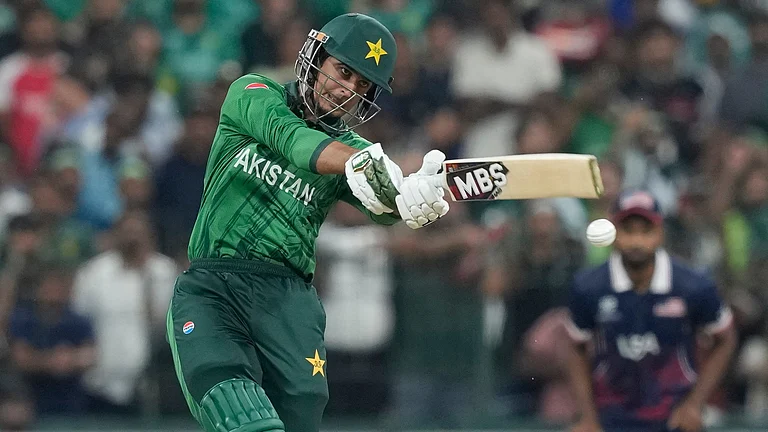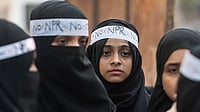Bhau Usgaonkar, a 65-year old vegetable vendor who sells his wares on a handcart in the Mapusa market is a disappointed man. He did not sell vegetables until some months ago. This is a venture he started post-Covid-19 to make ends meet. He and his wife have been abandoned by their two sons who have settled in other parts of India. He spent his savings when his wife contracted Covid during the second wave. Despite their frail health, the Usgaonkars will travel the distance to the voting booth to cast their vote. They are hoping that a new government will set up free old age homes where people like them can spend their August years without any worries.
As Goa votes on Monday, there are many like the Usgaonkars who have pinned their hopes on a government that cares for the increasing population of senior citizens spread across Goa. “What do we do? There is no money in Goa for old people who have been abandoned by their children. No one has promised anything for senior citizens. They are talking about women, youth, jobs but not one of the political parties have said they will do something for the senior citizens,” said Usgaonkar to Outlook.
However, going by the number of political parties in the fray, the mandate could be a fractured one. In such an eventuality, those like the Usgaonkars may continue to be side-stepped. While the Usgaonkars look at the outcome of these polls with much hope, a vast majority do not. “Too many parties for too few seats. There will be more money exchange because they will need the numbers to form the government,” said Sonia D’Souza, who is in the process of setting up her start-up. Disillusion, disappointment and anger are the varying emotions the voters in the state feel as they step out to cast their votes.
Amongst all the political parties in the fray, it is the BJP that has faced a maximum rebellion from within its ranks. “I have been associated with the BJP for several decades and am a committed voter of the party. This time I will not vote for the BJP. Power has made them arrogant and corrupt. They need to sit in the Opposition for their arrogance to go,” said Pradip, a resident of Ponda. “I will vote for the Maharashtra Gomantak Party (MGP),” he told Outlook.
There is widespread anger within the BJP against its own leadership and candidates. The fielding of “imported leaders from other parties” as official candidates have started out as a “loyalists” versus “outsiders” tussle which could prove costly at the hustings. Sources in the know of events say that chief minister Pramod Sawant faces a very tough election as supporters of Vishwajit Rane, the state’s Health Minister are not keen on him returning back to the Legislative Assembly. Ditto is the case for Rane too. The chief minister’s supporters do not want him to be elected back. “The tussle between these two top leaders in the state will definitely impact the party,” said a party supporter to Outlook.
Utpal Parrikar, son of the late chief minister Manohar Parrikar is contesting as a BJP rebel in the Panaji Assembly constituency, which his father had represented for six terms. He is pitted against the BJP candidate Atanasio “Babush” Monserrate, who quit the Congress Party in 2019 and joined the BJP. The party’s rejection of Utpal Parrikar has angered the supporters of the late chief minister. BJP seems to have burnt its bridges with the Parrikar supporters across Goa.
Former BJP chief minister Laxmikant Parsekar, who was also denied a ticket by the party, is contesting as an independent from the Mandrem constituency. He was the head of the BJP manifesto committee but was overlooked as a candidate. In the Sanguem constituency Savitri Kavelar, the wife of deputy chief minister Chandrakant Kavelar is contesting as a BJP rebel. She had joined the BJP from the Congress Party on the promise of a ticket from the seat. In the Cumbharjua constituency BJP rebel Rohan Harmalkar is contesting as an independent against the party’s candidate Jainita Madkaikar
Rebellion in the BJP has benefitted the Congress Party too. Michael Lobo, a former BJP minister, shifted loyalties and joined the Congress Party. His rebellion has been a big jolt to the BJP. Lobo has considerable influence over four other constituencies which will be advantageous to the Congress Party in a major way. Lobo is contesting from the Calangute assembly constituency which is his stronghold.
Despite the best efforts of the top leadership, the BJP has not been able to stop the party’s rebels from contesting in four seats - Panaji, Mandrem, Sanguem and Cumbharjua. The BJP is on a sticky wicket. Dissident workers of the party have been reportedly working clandestinely for the MGP’s candidates, which may help them get the much-needed seats. According to sources, the MGP’s gains will in a way benefit its alliance with the All Indian Trinamool Congress. On the other hand, the Congress Party which had been considerably weakened after the defections of powerful leaders from the party has gained much sympathy from the people in the run-up to the polls.
However, with 15 of its 17 MLAs quitting the party, the newer candidates in the fray are unknown to the electorate. “For years on end, the party had those leaders at the top. There was no second rung leadership. Now when the big leaders have left, the party had a tough time getting strong candidates,” said a Congress Party leader.
In smaller states like Goa, the size of the electorate is small and victory margins smaller. Therefore, every vote matters. The Covid-19 pandemic had made campaigning tougher for all political parties. The focus of all political parties is to ensure that the electorate comes out to vote. Sources told Outlook that the voter turnout may not be high as people are furious with the engineered defections of the MLAs. In a Legislative Assembly of 40 members, 24 MLAs have crossed over to other parties from their original moorings. When the size of the electorate in the constituencies are small and victory margins smaller, every vote counts.
Smaller parties like the Goans Revolutionary Party (GRP), which began their campaigning on a strong note have been able to sustain the tempo until the close of campaigning. Whether it was rural or urban Goa, the flag of the GRP with its “football” emblem was visible. Youngsters on bicycles moved around the state canvassing for the party. Though it is one of the youngest political parties in the poll fray, the GRP has gained much popularity with the electorate. “Goans Revolutionary Party is our party. They speak for the Goans and understand our problems. The big parties don’t care after election day,” said Sunder Kasodekar, a data operator. The GRP may not win seats but could emerge as “spoilers”.
As the campaign came to a close the initial noise generated by the All Indian Trinamool Congress and the Aam Aadmi Party petered out. “It was as if they ran out of money,” said Nilesh Parab, a civil engineer.
With chances of any political party emerging as the single largest with a clear majority, in all likelihood Goa is headed for a hung assembly which could lead to the second round of horse trading – the first being the engineered defections.


























